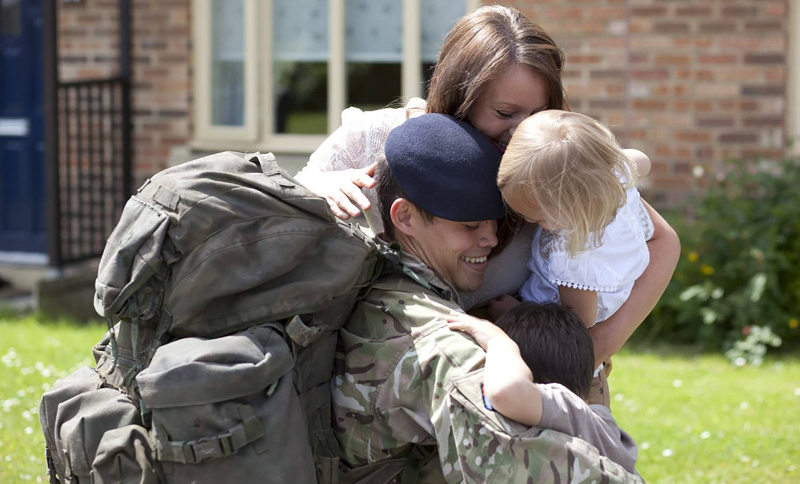
Community covenants complement, at a local level, the Armed Forces Covenant, which outlines the moral obligation between the nation, the government and the armed forces…
It encourages local communities to support the armed forces community in their area and promote understanding and awareness among the public of issues affecting the armed forces community. Local authorities and the armed forces community are encouraged to work together to establish a covenant in their area in order to:
- encourage local communities to support the armed forces community in their areas and to nurture public understanding and awareness among the public of issues affecting the armed forces community
- recognise and remember the sacrifices faced by the armed forces community
- encourage activities which help to integrate the armed forces community into local life
- encourage the armed forces community to help and support the wider community, whether through participation in events and joint projects, or other forms of engagement
Covenants in each community may look quite different from one location to another. This is a scheme where one size does not fit all, and the nature of the support offered will be determined by both need and capacity.
Since the launch of the ‘community covenant’ in June 2011, every local authority in mainland Great Britain has signed a ‘community covenant partnership’ with their local armed forces and positive benefits are being reaped as result. The community covenant is now known simply as the Armed Forces Covenant, which covers all aspect of society.
Many local authorities have an ‘Armed Forces Champion’. The role of a ‘champion’ is often to make sure that the local authority achieves its commitments to the armed forces community and any blockages are resolved.
Some of the benefits to the service community from covenants created in their local communities include:
- prior to the last deployment the covenant partnership in North Yorkshire designed and provided a programme called “Lost Worlds” to 150 council staff who were then better able to support families and particularly children and young people more effectively
- Vale of Glamorgan council introduced a new policy of asking customers if they have an armed forces connection when they contact the council in order to ensure that the service community receives all the services they are entitled to and has worked with external partners to provide an online database of support available to the community
- Hampshire County Council are working closely with schools to look at how we spread best practice in the support of children of service personnel, and have established a newsletter in order to spread ideas and practical solutions
- DG First Contact was established by Dumfries and Galloway to develop a strategy with key decision makers and service providers in Dumfries and Galloway to support ex-service personnel, with Dumfries and Galloway becoming one of the first regions in Scotland to set up a priority system for re-settling veterans in the social housing sector
- Birmingham Council has a dedicated ‘Armed Forces Housing Officer’ to support those leaving the services
- Buckinghamshire County Council set up an action plan looking at issues such as using GP groups to help gather information on the armed forces community; ensuring children of service personnel have access to appropriate school places; looking at skill matching armed forces skills to their civilian counterparts; providing links between employers and ex-service personnel
Find out how the Department for Work & Pensions is improving support for members of the armed forces and their families under the Armed Forces Covenant here.

